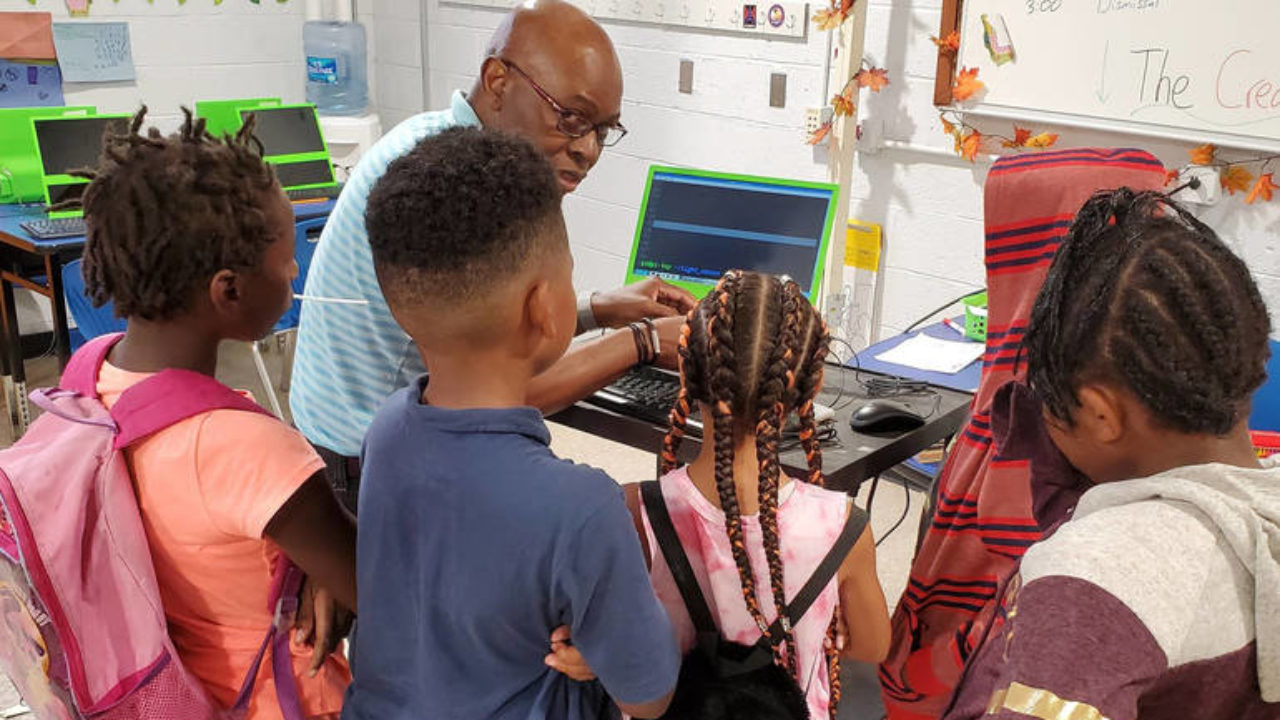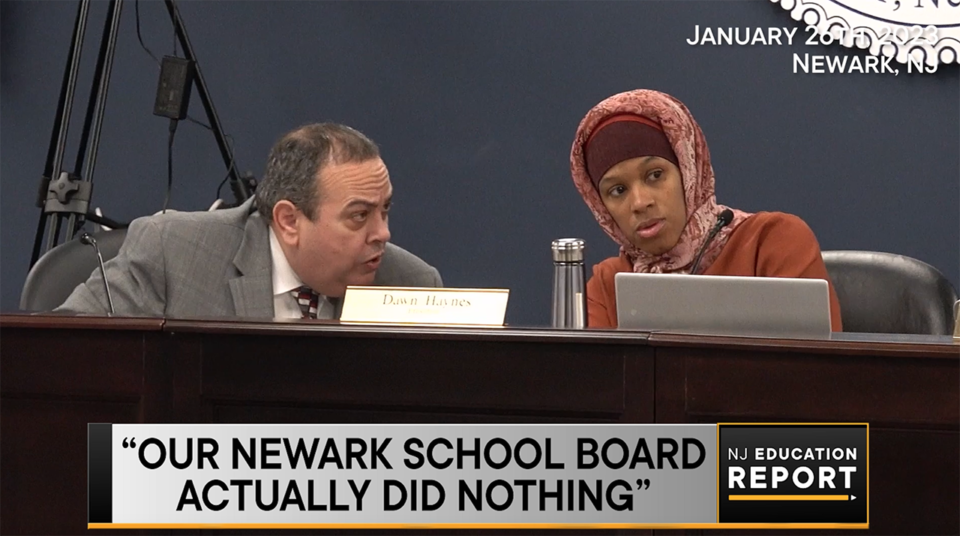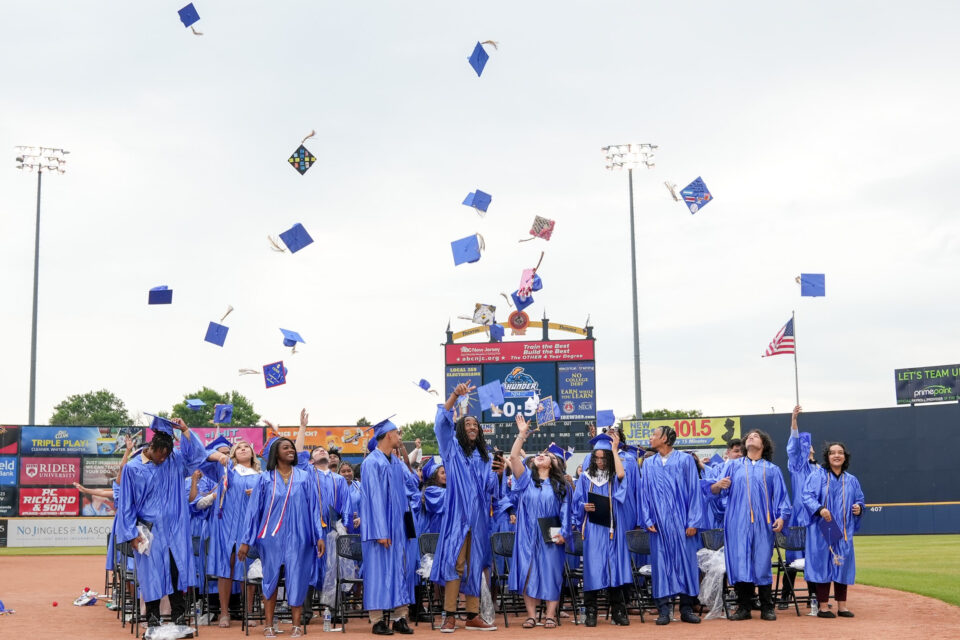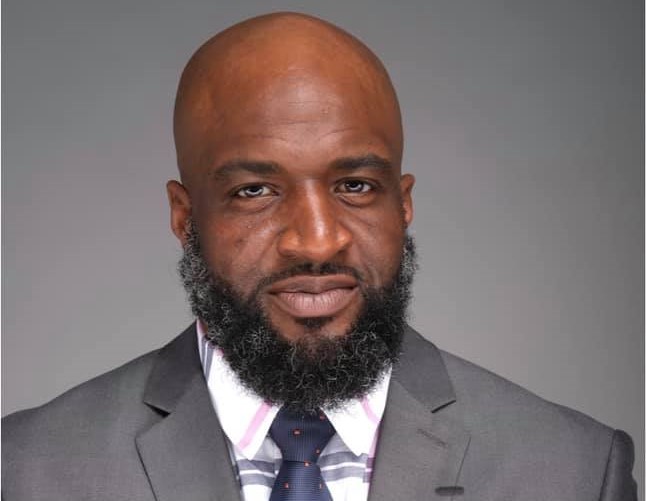
Camden’s Accelerating Inclusion Institute Brings Together Special Education Leaders Across District, Charter, and Renaissance Schools
November 23, 2021
To Quarantine or Not to Quarantine? Divergent Approaches in South Orange and West-Windsor
November 29, 2021BIDWAI: It’s Time to Embrace Virtual Schooling and Return Power to Parents
Makarand Bidwai is a New Jersey parent who lives in the Princeton area. He has previously protested Gov. Murphy’s mandate that all students must participate in in-person schooling amidst the COVID-19 pandemic.
On extreme weather days like many in the past, brick-and-mortar schools ought to be virtual. However, this idea scares the life out of those who see this as a slippery slope and who oppose virtual schooling, no matter what the incentive. Virtual schooling is shunned by the powers-that–be because under this system the control returns to the parents. Yet during this pandemic, due to the acceptance of virtual schooling among parents, perspectives have changed.
Why the resistence to parent control? Follow the money that pads so many pockets through the public schools. The money formula is getting in the way of progress and, thus, our graduation into co–existence with virtual or hybrid schools is held up just like the renewable energy jobs are held hostage by people who cannot let go of fossil fuels. Like Amazon’s virtual stores have taken over market share from traditional stores, this revolution is underway and those who fear the loss of status quo traditional schools cannot stop it. They can either choose to ride the virtual tide or fall off the wall.
The time has come to abandon school referenda that cause taxes to expand and increase our carbon footprint. Instead, we should permit parents the freedom to take their tax dollars wherever their pupils can learn, whether that be public, private, pods, parochial, or homeschool.
When minds expand to new ideas it is hard to return to old ideas. The virtual world of education is already a few decades old. Thus, New Jersey is in a diminishing group of states that still refuses to accept that tomorrow is here now and this tide will not turn back. Virtual learning can help kids in the real world. Formal schools “quantize” education into limited scope periods. We must avoid this. The time has come to think about how to avert traditional ‘learning loss’ and not remain married to a brick school: this may not be the last pandemic, and the next pandemic may not be airborne.
“Learning loss” is actually “earning loss” for the people who pad their pockets through brick-and-mortar public schools.
When a segment of the population parrots “learning loss,” they know no education is evident, exposing themselves as puppets of the vested interest. Each day and night children absorb a lot of useful knowledge and some noise too, regardless of the type of school. This is worldly knowledge gained through osmosis from the community, the street, the village. Aptly, it takes a village to educate our children and this expands each child’s horizon. “Learning loss” is a term that narrowly defines the manipulation of the three Rs: reading, writing, and arithmetic.
However, there are innovative ways that we can encourage application by involvement in the community that is akin to learning on the job. Our mind’s blueprint is hardwired for learning, and from time to time it replaces our existing experiences and adaptations. Thus, “learning loss” is a failure at recall and at retention of specific classroom tasks. There is no net learning loss.
Edumalls — Keeping Education Dynamically Current
My idea of indoor edumalls requires that each classroom be converted to a thematic exhibit–a lab or a studio— that rotates every few weeks from the sciences, to the arts, to the fine arts, to the martial arts, to the performing arts. Our kids take a stroll with their parents and caregivers at times suitable to them, learning the same classroom skills in a much relaxed setting. We can never bring nature into the classroom, but we can always convene a classroom in nature, which is an outdoor edumall. This also breaks the 6–7 hours school “shift” culture for students, a remnant of the industrial age just as “education” was an afterthought to keep parents free to work the assembly lines that we so far refuse to let go of. About four hours of “formal” schooling will be sufficient four days a week.
Let kids be kids: There’s no need to “jail them” so parents can work.
I’m a big advocate of free time for kids to pursue various hobbies. In fact those who fail to find their niches (hobbies) before school ends may end up as mediocre citizens. The world requires a lot of un-learning after formal schooling. Ironically, then, formal schooling is a waste of youthful years, indeed. Let us not forget that time is our only asset and the rest is “money” illusion.
Parents should be given a dozen years of Universal Basic Income (UBI) to educate their children as primary caretakers
Another of my ideas is deeply rooted in giving each parent a 12-year paid vacation until the youngest child is 12 years old; then they return to the world of work. In the meantime, they learn skills that help them educate their children. They may work at their own pleasure, but only as an aside to being the primary educators for their kids. This serves a dual purpose: Knowledge is exploding and so, along with their kids, the parents get every opportunity to stay current with the times. This in turn gives us several overlapping generations of parents and grandparents that have developed an expanded worldview, and that keeps expanding, for some, even exponentially. I learn with my children, daily.
I’ve advocated “disinventing money” and “disinventing 9 to 5 work culture” for a long time to save the planet for us. The way to do so is to give each human being a CPI (Consumer Price Index)-pegged UBI for each human need like nutrition, shelter, education, health, and some recreation/transportation. If that golden doorknob is desired by some, they can earn their way to their “wants.” Thus, each human being can be creative. That is indeed learning through hobbies and parents can expose their children to hundreds of those. Of these hobbies, let us hope the children take them seriously. And let us hope they use them to contribute to society and earn their money for their own “wants.” To be mindful, some “wants” of yesterday are the “needs” of today, like an electric–only vehicle. This is the formula to make the next Tesla affordable.
Learning Takes No Vacations
Learning never stops. Just observe each child and we couldn’t not agree more. Any academic learning is a subset of anthropological learning. Just as we graduated from the Stone Age to the cyber–world of Machine Learning (ML) and the Artificial Intelligence (AI) Age, baseline anthropological learning grows with each epoch. We’re smarter by the day — no schooling ever required. Period.




